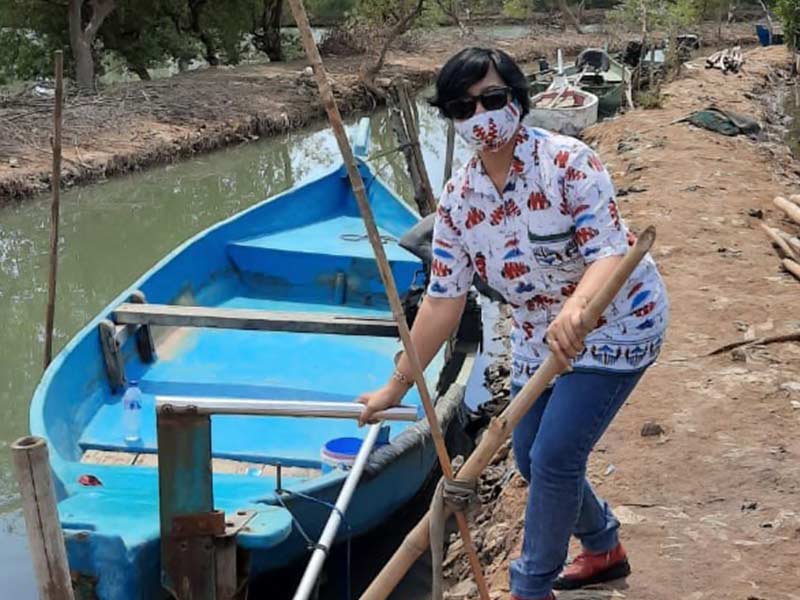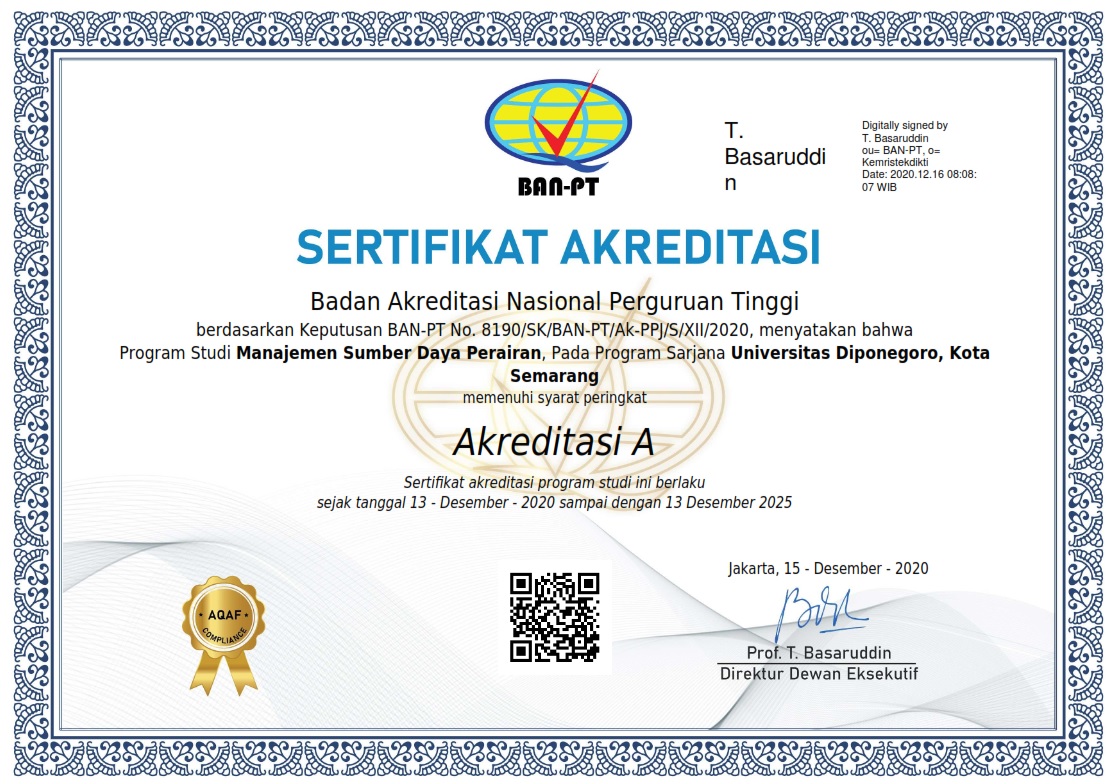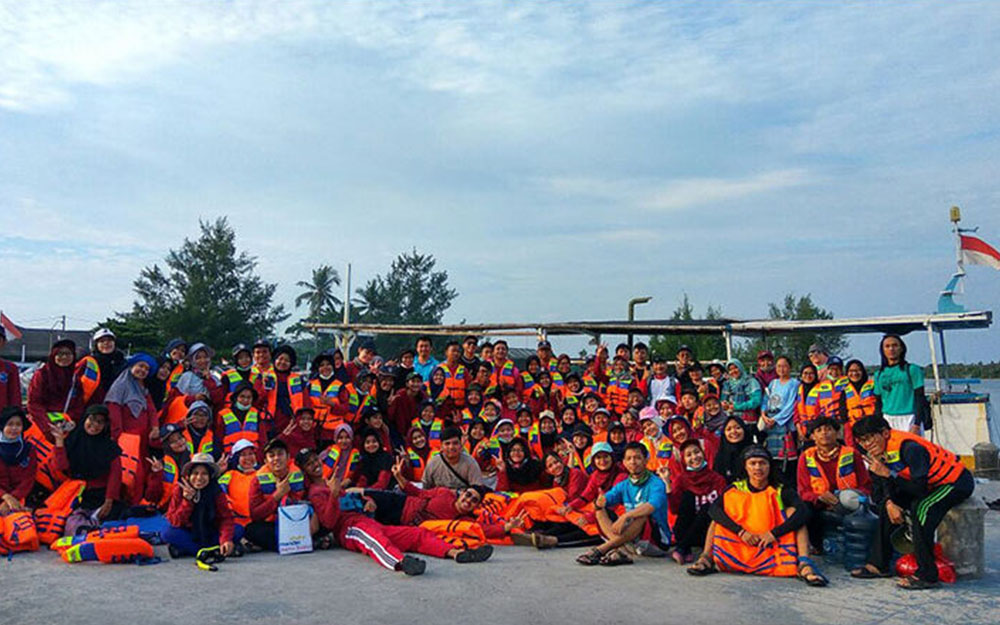AQUATIC, SEMARANG – Indonesia has abundant water resources, not only 1/3 of the ocean area, it even starts from upstream to downstream. This is the motivation of the Water Resources Management Study Program (MSP) in the Department of Aquatic Resources (SDA) of the Faculty of Fisheries and Marine Sciences, Diponegoro University (FPIK UNDIP) to be ready to produce superior human resources in the field of aquatic resources.
It is known that the potential of aquatic resources that we have today is abundant, the Head of the Department of Aquatic Resources FPIK UNDIP, Dr. Ir. Suryanti, M.Pi, argues that although Indonesia’s aquatic (aquatic) natural resources are very diverse and abundant, all available potentials have not been fully utilized for the welfare of the community because of the limited Human Resources (HR) capable of managing them.
“In the context of how aquatic resources are managed, our task is to prepare superior Human Resources. In addition to conducting research and community service related to this, it is a higher education institution,” she said, Monday (28/6/2021). According to Suryanti, the potential that exists in aquatic natural resources can be said to be limitless; so it is necessary to prepare human resources who have the ability, knowledge and competence to manage it. UNDIP realizes the importance of this, so that PTN BH in Semarang City is moved to organize study programs related to the management of aquatic resources.

Photo: Head of the MSP FPIK UNDIP S1 Study Program, Dr. Ir. Suryanti, M.Pi while doing research in the field
Aquatic resources are a dimension of natural wealth in the seas or oceans, rivers, swamps, springs, lakes, reservoirs, and the utilization of artificial ponds. There are various kinds of resources that are beneficial for life, including fish which is a source of omega 3, vitamins, minerals and protein; then shrimp, squid, octopus and the like as a source of nutrition; seaweed as a source of fiber; plants and other marine biota, one of which is sea urchin which can be a source of pharmacology; pearl; as well as sand and various mineral materials in the waters that can be used for various needs as an effort to food security during the Covid-19 pandemic.
“We are in a country rich in aquatic resources. The number is abundant, and the types are very diverse and abundant. This is a challenge for the younger generation to answer. We really hope that high school students and their equivalents enter this field; If not, then foreign workers will definitely enter,” he concluded. It is this sense of responsibility as a higher education institution that makes UNDIP have a big commitment to open the MSP Study Program, the Department of Natural Resources, FPIK. Study programs that already have Acreditation from BAN PT (National Accreditation Board for Higher Education), so that wealth management is carried out by state children, not by foreign workers.
The MSP Study Program of the Department of Natural Resources FPIK UNDIP makes maximum efforts to prepare qualified human resources, not only mastering knowledge and being able to apply it, but can develop water and fishery management to control the level of utilization of aquatic biological resources in a rational, sustainable and sustainable manner for the development of community welfare. “Our target is to produce experts with COMPLETE and competent characters in the field of aquatic resources,” said Suryanti.

Photo: Accreditation Certificate of BAN-PT Water Resources Management Study Program meets the “A” rating requirements
There are three study programs organized to produce human resources who are reliable in managing aquatic resources, namely through the Undergraduate Study Program (S1) in Water Resources Management; Coastal Resource Management Master Program (S2); and Doctoral Program in Coastal Resource Management (S3). “With the Predicate Accredited A BAN PT in the Department of Aquatic Resources is complete so that scientific development can support each other,” said Suryanti who also serves as Acting Head of the Undergraduate Program in Water Resources Management.
UNDIP targets that its graduates in addition to having COMPLETE characters, also have competencies and expertise qualifications that are recognized nationally and internationally. COMPLETE character is defined as being able to become a Communicator (able to communicate verbally and in writing), Professional (working according to principles, development based on achievement and upholding the code of ethics), Leader (becoming an adaptive leader, responsive to the environment, proactive, can be a motivator, agile build cooperation), Entrepreneur (high work ethic, have entrepreneurial skills, innovative, independent), Thinker (able to think critically, lifelong learning, able to do research), and Educator (capable of becoming agents of change).
Competence, UNDIP requires the existing study programs to develop the ability of its graduates to be able to do work in accordance with the established standard of expertise. The Department of Natural Resources, FPIK, directly applies the KKNI (Indonesian National Qualifications Framework) as a framework for leveling HR qualifications that juxtaposes, equalizes, and integrates the education sector with the training sector and work experience in a recognition scheme to support the profession. Graduates of the S1 Study Program are confirmed to be at level 6, S2 graduates are at level 7 and S3 graduates are at level 9.
In addition to the KKNI, the MSP Study Program in the Department of Aquatic Resources also applies the required standard of expertise so that its graduates can work optimally in the aquatic environment. Swimming skills are a requirement that must be met so that students can graduate from the MSP Study Program. “Of course there are more specific ones that are given through lectures and laboratory practices as well as field practices,” she concluded. (Quoted: joss.co.id | lna)


